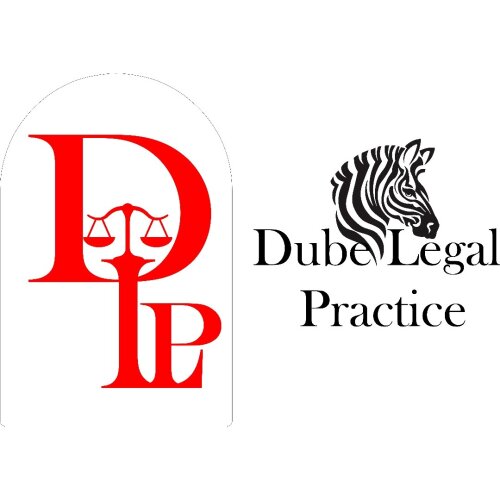Best Energy, Environment & ESG Lawyers in Bulawayo
Share your needs with us, get contacted by law firms.
Free. Takes 2 min.
List of the best lawyers in Bulawayo, Zimbabwe
About Energy, Environment & ESG Law in Bulawayo, Zimbabwe
Energy, Environment and ESG (Environmental, Social, and Governance) law in Bulawayo, Zimbabwe, governs the way individuals, businesses, and government bodies interact with the environment, natural resources, and broader sustainability standards. Bulawayo, as Zimbabwe's second-largest city and a major industrial hub, faces unique environmental and energy challenges stemming from urban development, water scarcity, and industrial activity. ESG principles are gaining momentum among investors and businesses, creating a growing need for legal expertise in compliance and accountability. The laws in this field aim to ensure responsible resource use, promote sustainable development, protect communities, and support the transition towards clean energy solutions.
Why You May Need a Lawyer
There are several situations where seeking legal advice in Energy, Environment, and ESG is crucial in Bulawayo:
- If you are developing land or constructing new buildings and need to comply with environmental impact assessments.
- If your business operates in sectors like mining, manufacturing, or agriculture and interacts with natural resources or hazardous substances.
- If your project involves renewable energy development, such as solar or hydro power installations.
- If you are facing fines or enforcement action due to alleged environmental law violations.
- If you need to understand your legal obligations around waste disposal, pollution control, water management, or emissions.
- If your organization must comply with ESG reporting standards or you are responding to ESG-related investor or stakeholder inquiries.
- If you are part of a community concerned about the environmental or social impact of industrial or government projects in your area.
- If you require advice on obtaining permits, licenses, or authorizations under local and national laws.
Local Laws Overview
Zimbabwe's legal framework for Energy, Environment, and ESG is built on several key statutes, regulations, and policies that apply to Bulawayo and the surrounding region:
- The Environmental Management Act [Chapter 20:27] establishes the Environmental Management Agency (EMA) and sets out rules for environmental protection, impact assessments, pollution control, waste management, and permits.
- The Mines and Minerals Act regulates mining activities, including land rights, environmental responsibilities, and community engagement.
- The Water Act manages water resources, focusing on permits for abstraction or discharge, water pollution prevention, and access to water sources.
- The Energy Regulatory Authority Act and related statutes oversee the generation, distribution, and licensing of electricity, including renewable energy initiatives.
- Local by-laws, particularly those enacted by the Bulawayo City Council, may set additional requirements for noise, waste collection, municipal water use, and pollution control within city limits.
- While ESG reporting is not yet mandatory, there is a growing expectation for listed companies and major projects to consider these standards, especially where international investment is involved.
Frequently Asked Questions
What is an Environmental Impact Assessment (EIA) and when is it required?
An Environmental Impact Assessment is a study conducted before certain projects begin, to evaluate their potential environmental effects. In Bulawayo, EIAs are required by law for projects likely to affect the environment, such as new factories, housing estates, or mining activities. Approval from the Environmental Management Agency is essential before work begins.
What permits or licenses are needed to start a renewable energy project in Bulawayo?
You may need permits from the Zimbabwe Energy Regulatory Authority for electricity generation and distribution, and, depending on project location and type, authorization from the EMA and city council for environmental and land-use compliance.
What are the penalties for violating environmental laws?
Penalties range from fines and enforcement orders to closure of business operations and even criminal charges in severe cases. The EMA has the authority to issue notices, require corrective action, or prosecute offenders.
Who regulates pollution in Bulawayo?
The Environmental Management Agency is responsible for regulating and monitoring pollution, including air, water, and land pollution. The Bulawayo City Council also regulates municipal issues such as noise and waste.
How can communities raise environmental concerns about local projects?
Communities can submit complaints directly to the EMA, participate in public hearings as part of the EIA process, or seek legal representation to challenge projects that may harm local environments or health.
Does my business need to comply with ESG standards?
Compliance is mandatory for some sectors and is increasingly expected in investment agreements or supply chains. While not always legally required, ESG compliance can influence business reputation and access to international markets or financing.
How can I access water resources for industrial use?
Industrial water use requires obtaining an abstraction permit under the Water Act. The application process includes proving responsible use and may involve environmental impact checks.
What legal steps should I take before disposing of industrial or hazardous waste?
You must follow guidelines set by the EMA, including proper storage, transportation, and disposal at approved sites. Failure to comply can lead to penalties and environmental liabilities.
Are there incentives for adopting renewable energy solutions in Bulawayo?
The government and some international agencies offer incentives such as import duty waivers and grants for qualifying renewable energy projects, subject to compliance with regulatory requirements.
Can I appeal a decision made by the EMA or other authorities?
Yes, the law allows for administrative appeals and, if necessary, recourse to courts to challenge or review regulatory decisions affecting your rights or business activities.
Additional Resources
For further information, you can consult or contact the following:
- Environmental Management Agency (EMA): The lead environmental regulator, overseeing permits, compliance, and enforcement.
- Zimbabwe Energy Regulatory Authority (ZERA): Manages the licensing and regulation of all energy projects, including renewables.
- Bulawayo City Council: For by-laws, municipal services, and local permits.
- Zimbabwe Lawyers for Human Rights: Offers legal assistance on environmental and social issues.
- Ministry of Environment, Climate, Tourism and Hospitality Industry: Responsible for national environmental policy and climate change initiatives.
- Zimbabwe National Chamber of Commerce (ZNCC): Provides guidance and support for businesses looking to meet ESG standards.
Next Steps
If you need legal assistance in Energy, Environment, or ESG matters in Bulawayo, it is important to take the following steps:
- Define your legal issue clearly, noting any deadlines or official notices received.
- Gather all relevant documentation, including licenses, permits, contracts, and any correspondence with regulatory bodies.
- Contact a qualified legal practitioner experienced in environmental or energy law, who understands local regulations and procedures in Bulawayo.
- Consult with relevant government agencies, such as the EMA or ZERA, to gather factual information before legal proceedings if possible.
- Consider mediation or other dispute resolution options if appropriate, as these can often lead to faster, less costly outcomes.
- Remain proactive in meeting compliance deadlines and responding to official communications to reduce potential legal risks.
Seeking timely legal advice will help you understand your obligations, protect your interests, and ensure your activities contribute positively to Bulawayo's sustainable future.
Lawzana helps you find the best lawyers and law firms in Bulawayo through a curated and pre-screened list of qualified legal professionals. Our platform offers rankings and detailed profiles of attorneys and law firms, allowing you to compare based on practice areas, including Energy, Environment & ESG, experience, and client feedback.
Each profile includes a description of the firm's areas of practice, client reviews, team members and partners, year of establishment, spoken languages, office locations, contact information, social media presence, and any published articles or resources. Most firms on our platform speak English and are experienced in both local and international legal matters.
Get a quote from top-rated law firms in Bulawayo, Zimbabwe — quickly, securely, and without unnecessary hassle.
Disclaimer:
The information provided on this page is for general informational purposes only and does not constitute legal advice. While we strive to ensure the accuracy and relevance of the content, legal information may change over time, and interpretations of the law can vary. You should always consult with a qualified legal professional for advice specific to your situation.
We disclaim all liability for actions taken or not taken based on the content of this page. If you believe any information is incorrect or outdated, please contact us, and we will review and update it where appropriate.
Browse energy, environment & esg law firms by service in Bulawayo, Zimbabwe
Bulawayo, Zimbabwe Attorneys in related practice areas.









